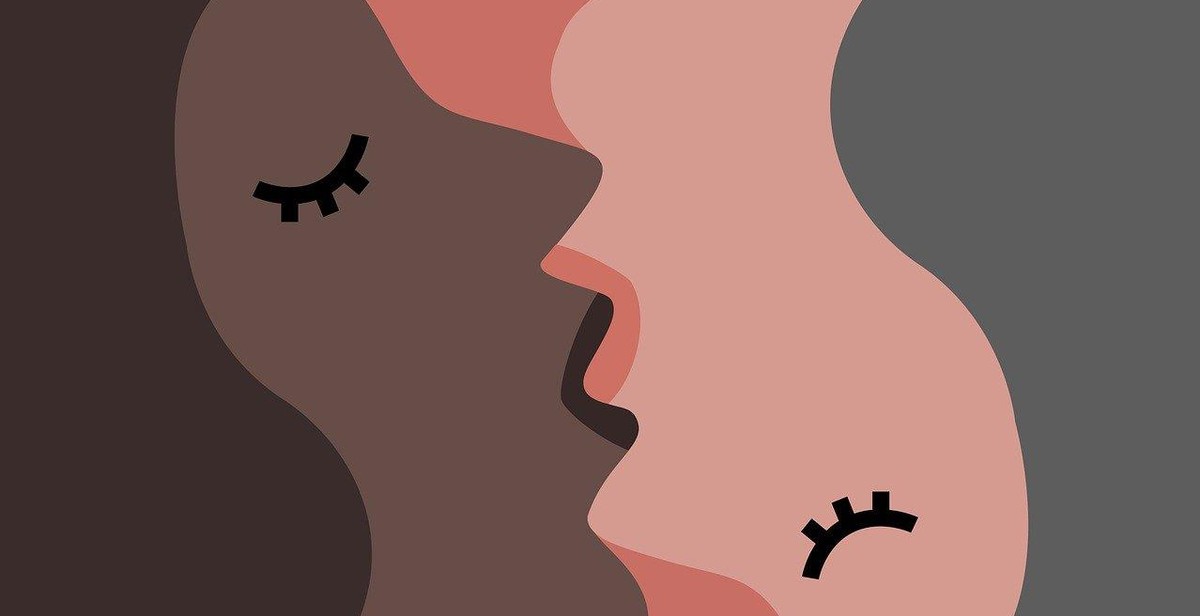The Stages of Love: Understanding Relationship Progression
Love is a beautiful feeling that is experienced by everyone at some point in their lives. However, it is not always easy to understand the complexities of a romantic relationship. Relationships go through different stages, each with its unique challenges and rewards. Understanding the stages of love can help you navigate your relationship and strengthen your bond with your partner.
The Different Stages of Love
There are typically five stages of love that couples go through:
- Attraction: This is the initial stage where you feel a strong physical and emotional pull towards your partner.
- Infatuation: In this stage, you may start to idealize your partner and overlook their flaws.
- Commitment: This is when you decide to commit to your partner and work towards building a long-term relationship.
- Intimacy: In this stage, you start to share deeper emotional and physical connections with your partner.
- Co-creation: This is the final stage where you work together to create a shared vision for your future.
Each stage presents unique challenges, and it is essential to understand them to build a healthy and fulfilling relationship. In this article, we will discuss each stage in detail and provide tips on how to navigate them successfully.

Stage 1: Infatuation
When we first meet someone new and feel an intense attraction towards them, we are experiencing infatuation. This stage is often referred to as the “honeymoon phase” of a relationship, where everything feels new and exciting.
What is Infatuation?
Infatuation is an intense feeling of attraction towards someone, where we become completely consumed by thoughts of them. We may feel an overwhelming desire to be with them, constantly thinking about them and wanting to spend time with them.
Characteristics of Infatuation
- Intense attraction towards someone
- Feeling consumed by thoughts of them
- Overwhelming desire to be with them
- Feeling like everything is new and exciting
- Feeling like we have found “the one”
How Long Does Infatuation Last?
Infatuation can last anywhere from a few weeks to a few months, depending on the individuals and the relationship. It is important to note that infatuation is not sustainable and will eventually fade.
Why Infatuation is Important in a Relationship
Infatuation is important in a relationship because it creates the initial spark and attraction between two people. It allows us to feel excited and motivated to pursue a relationship with someone. However, it is important to recognize that infatuation alone is not enough to sustain a healthy and long-lasting relationship. It is important to move past this stage and develop a deeper emotional connection with our partner.

Stage 2: The Honeymoon Phase
After the initial attraction and infatuation phase, the honeymoon phase is the second stage of a romantic relationship. This stage is characterized by intense passion, excitement, and joy. Couples in this stage often feel deeply connected and can’t get enough of each other.
What is the Honeymoon Phase?
The honeymoon phase is a period of time in a relationship where everything feels perfect. Couples in this stage are often in a state of bliss and feel like they have found their soulmate. The chemistry between them is electric, and they feel deeply connected emotionally, physically, and mentally.
Characteristics of the Honeymoon Phase
The honeymoon phase is characterized by intense feelings of love and passion. Couples in this stage often feel like they are on cloud nine and can’t get enough of each other. They may spend a lot of time together, have a lot of sex, and talk about their future together. Other characteristics of the honeymoon phase include:
- Feeling deeply connected emotionally, physically, and mentally
- Feeling like you have found your soulmate
- Being in a state of bliss
- Having intense chemistry
- Feeling like the relationship is perfect
How Long Does the Honeymoon Phase Last?
The honeymoon phase typically lasts anywhere from six months to two years. However, the length of this stage can vary depending on the couple. Some couples may experience a shorter or longer honeymoon phase.
Why the Honeymoon Phase is Important in a Relationship
The honeymoon phase is important in a relationship because it sets the foundation for the rest of the relationship. During this stage, couples are deeply connected and feel like they have found their soulmate. This can give them the confidence to work through any challenges that may arise later in the relationship. Additionally, the intense passion and excitement in the honeymoon phase can help keep the spark alive in the relationship.

Stage 3: The Power Struggle
After the honeymoon phase, couples often enter the power struggle stage. This is where differences and conflicts start to arise, and the relationship is put to the test. The power struggle is a natural and necessary part of every relationship. It is a time where couples learn to navigate their differences and work through the challenges that come with being in a committed partnership.
What is the Power Struggle?
The power struggle is a stage where couples begin to notice each other’s flaws and differences. They may start to argue more often, and communication can become more difficult. This stage is also characterized by a shift in power dynamics. In the beginning, partners may have been willing to compromise and accommodate each other’s needs, but now they may be more assertive and less willing to give in to the other’s demands.
Characteristics of the Power Struggle
The power struggle stage is marked by several characteristics, including:
- Increased conflict and disagreements
- Difficulty communicating effectively
- A shift in power dynamics
- A focus on individual needs rather than the needs of the relationship
- Less patience and understanding for each other
How Long Does the Power Struggle Last?
The power struggle stage can last anywhere from a few months to a few years, depending on the couple and their ability to work through their differences. Some couples may get stuck in this stage and never move past it, while others may navigate it successfully and move on to the next stage of their relationship.
Why the Power Struggle is Important in a Relationship
The power struggle is an important stage in a relationship because it allows couples to work through their differences and learn how to communicate effectively. It is also a time where couples can establish healthy boundaries and assert their needs in the relationship. Successfully navigating the power struggle can lead to a stronger, more resilient relationship in the long run.

Stage 4: Stability
Stability is the fourth and final stage of a healthy and successful relationship. It is a stage where the couple has established a strong sense of trust, commitment, and security in their relationship. This stage is characterized by a deep understanding of each other’s needs, wants, and expectations.
Characteristics of Stability
- Trust: Both partners trust each other completely, and there is no room for jealousy or suspicion.
- Commitment: Both partners are committed to the relationship and are willing to work through any challenges that may arise.
- Security: Both partners feel secure in the relationship and are confident in their love for each other.
- Intimacy: The couple has a strong emotional and physical connection, and they feel comfortable being vulnerable with each other.
- Communication: The couple communicates openly and honestly, and they are able to resolve conflicts in a healthy and respectful manner.
How Long Does Stability Last?
Stability can last for many years, and even a lifetime, as long as both partners continue to prioritize their relationship and work to maintain the characteristics of stability. However, it is important to note that relationships are not static, and there may be times when the relationship experiences ups and downs. It is important to work through these challenges together to maintain stability.
Why Stability is Important in a Relationship
Stability is important in a relationship because it provides a strong foundation for the couple to build upon. When both partners feel secure and committed, they are able to focus on other aspects of their lives, such as personal growth, career goals, and family. Stability also allows the couple to experience a deeper level of intimacy and connection, which can enhance their overall happiness and well-being.

Stage 5: Commitment
Commitment is the final stage of a relationship progression. It is the point where both partners have decided to stay together and work towards making the relationship last. Commitment is a crucial aspect of a healthy and successful relationship. It is the foundation upon which a long-lasting relationship is built.
What is Commitment?
Commitment is the decision to dedicate oneself to another person and to the relationship. It is a promise to be loyal, faithful, and supportive. Commitment means that both partners have agreed to work through any challenges that may arise and to prioritize the relationship above all else.
Characteristics of Commitment
- Willingness to prioritize the relationship
- Open communication
- Loyalty and faithfulness
- Shared values and goals
- Willingness to work through challenges
- Mutual respect and support
How Long Does Commitment Last?
Commitment is not a one-time event, but rather an ongoing process. The length of commitment varies from couple to couple and depends on factors such as shared values, goals, and level of mutual commitment. Commitment can last a lifetime for some couples, while others may find that their commitment wanes over time.
Why Commitment is Important in a Relationship
Commitment is important in a relationship because it provides a sense of security and stability. It allows both partners to feel confident in the longevity of the relationship. Commitment also promotes trust and fosters a deeper emotional connection between partners. When both partners are committed to the relationship, they are more likely to work through challenges and maintain a strong, healthy relationship.

Conclusion
Understanding the stages of love and the progression of a relationship is crucial for building a strong and lasting connection with your partner. It helps you navigate the ups and downs of a relationship and work through challenges together.
It is important to remember that every relationship is unique and may progress at a different pace. Some couples may move quickly through the stages, while others may take longer to reach certain milestones. However, the key is to communicate openly and honestly with your partner about your feelings and expectations.
During the attraction stage, focus on building a strong emotional connection and getting to know each other on a deeper level. In the second stage, work on building trust and establishing a strong foundation for your relationship. During the third stage, focus on deepening your commitment and working through any issues that arise.
Remember that relationships require effort and commitment, but the rewards of a strong and loving partnership are immeasurable. By understanding the stages of love and relationship progression, you can create a fulfilling and lasting relationship with your partner.
- Communicate openly and honestly with your partner
- Focus on building a strong emotional connection
- Establish trust and a strong foundation for your relationship
- Deepen your commitment and work through issues together
By following these guidelines and understanding the stages of love, you can create a healthy and happy relationship that lasts a lifetime.
